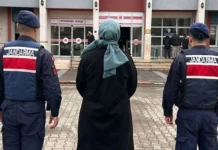İbrahim Saygı, a former official who was dismissed from Turkey’s Justice Ministry by a government decree as part of purges that followed a July 15, 2016 coup attempt, died in a traffic accident while working as a deliveryman in the western Turkish province of Manisa, Kronos news website reported.
He died at the scene in the Akhisar district of Manisa on June 10, Kronos said.
According to Kronos, Saygı was sentenced to three and a half years in prison in 2016 on conviction of alleged links to the Gülen movement due to depositing money in the now-closed BankAsya, a Gülen movement-affiliated financial institution that at one time was one of Turkey’s biggest commercial banks.
He was married and had two children.
Turkish President Recep Tayyip Erdoğan has been targeting followers of the Gülen movement, inspired by Turkish Muslim cleric Fethullah Gülen, since the corruption investigations of December 17-25, 2013, which implicated then-prime minister Erdoğan, his family members and his inner circle.
Dismissing the investigations as a Gülenist coup and conspiracy against his government, Erdoğan designated the movement as a terrorist organization and began to target its members. He intensified the crackdown on the movement after the abortive putsch, which he accused Gülen of masterminding. Gülen and the movement strongly deny involvement in the coup attempt or any terrorist activity.
Following the failed coup, the Turkish government declared a state of emergency and carried out a massive purge of state institutions under the pretext of an anti-coup fight.
More than 130,000 public servants, including 4,156 judges and prosecutors, as well as 24,706 members of the armed forces were summarily removed from their jobs for alleged membership in or relationships with “terrorist organizations” by emergency decree-laws subject to neither judicial nor parliamentary scrutiny.
Former public servants were not only fired from their jobs; they were also banned from working again in the public sector and getting a passport. The government also made it difficult for them to work formally in the private sector. Notes were put on the social security database about dismissed public servants to deter potential employers, leading them to work in unskilled jobs with little workplace safety. There have been cases where former public servants have died in occupational accidents.
According to a joint report by the Justice for Victims Platform and Ömer Faruk Gergerlioğlu, an MP from the pro-Kurdish Peoples’ Democratic Party (HDP) and a prominent defender of human rights, the two-year-long state of emergency declared after the failed putsch caused immense suffering among public servants who were dismissed from their jobs by the government as well as their families.
The biggest problem they have been facing is economic hardship (97.9 percent) followed by psychological problems (88.6 percent), loss of social prestige and social exclusion (83.7 percent), the disintegration of social circles (83.1 percent), unemployment/lack of employment (80.4 percent) and lack of social security (73.2 percent).















